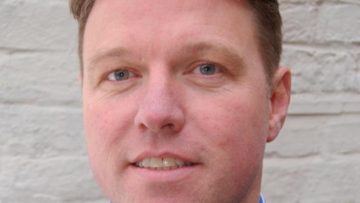 Jason Howells, Director EMEA, Barracuda MSP has said that cybersecurity and industry consolidation will continue to be hot topics for the EMEA IT channel next year.
Jason Howells, Director EMEA, Barracuda MSP has said that cybersecurity and industry consolidation will continue to be hot topics for the EMEA IT channel next year.
This year saw European data regulation and companies buying each other up left, right and centre, and he does not expect much to change in 2019.
“While it’s not a very controversial prediction, I do not expect this to change in the next year or so. But what does bring potential is the way channel partners adapt to and address these challenges. That could make all the difference,” Howells said.
In the coming year, the channel will need to identify new ways to work smarter and faster to meet the needs of their customers, along with the demands of what is becoming a very dynamic and crowded marketplace.
While no one knows how trends will manifest themselves, Howel said that with nearly three quarters (74 per cent) of attacks entering via email, email security would continue to be king. On top of this, email attacks are increasing, according to nearly three-quarters of EMEA IT professionals (73 per cent) in our research from earlier this year.
“Specifically, we’re observing that attacks targeting the individual are on the increase – such as phishing, spear phishing, and business email compromise. A growing number of hackers are turning to these social engineering techniques to increase their success,” he said.
One example of this is an account-based takeover. Typically resulting from a successful phishing attempt, an account takeover attack happens when a user shares their credentials, giving the hacker access to their email account.
“Phishing attacks also aren’t just confined to email anymore; we are seeing them penetrate voice and text communications,” Howells said. “Cybersecurity education is the key to a bulletproof security posture. We all know that the human risk, especially when it comes to email security, can be a significant liability. When it comes to minimising this, the vast majority (89 per cent) of EMEA IT security experts believe that end-user training and awareness programmes are important.”
He said that 35 per cent still don’t train their employees on how to spot phishing and spear-phishing which is a huge opportunity for channel partners.
Over the next year, MSPs and solution providers will need to help organisations to close this gap, and identify ways to educate customers on these types of exploits better. Solutions that provide security awareness training and phishing simulation, for example, can help users learn how to identify these attacks.
Specialisation in niche verticals such as healthcare, retail, legal services, government, or education, will be an excellent way for MSPs to differentiate themselves from the masses in the next 12 months, Howells said.
It’s value and not price that will lead to greater MSP success. One of the MSPs’ most common challenges is convincing SMB customers and prospects to stop dragging their feet and move beyond break-fix services to a managed service offering.
“To overcome these objections, focus on value not price. All SMBs want to spend as little as possible on their IT services. However, this leaves them open to security vulnerabilities — which due to hefty fines can end up being more expensive than hiring an MSP in the first place,” he said.
“Over the next year in particular, it will be make-or-break for MSPs to position their managed services as an investment, and not simply a cost. MSPs should educate their customers about why they can’t afford the negative consequences that come with not investing in the services. There will always be customers who are sceptical, but by leveraging the value afforded by the services to overcome objections, MSPs will be well on their way to success,” Howells said.
“Using my crystal ball, I can visualise the next few months as a very exciting time to be in and around the IT channel. If I look closer, there seems to be a lot of great promise for MSPs and service providers…. Although a warning too: the best rewards will be for those who take note of and, more importantly, act on these emerging trends,” he said.





